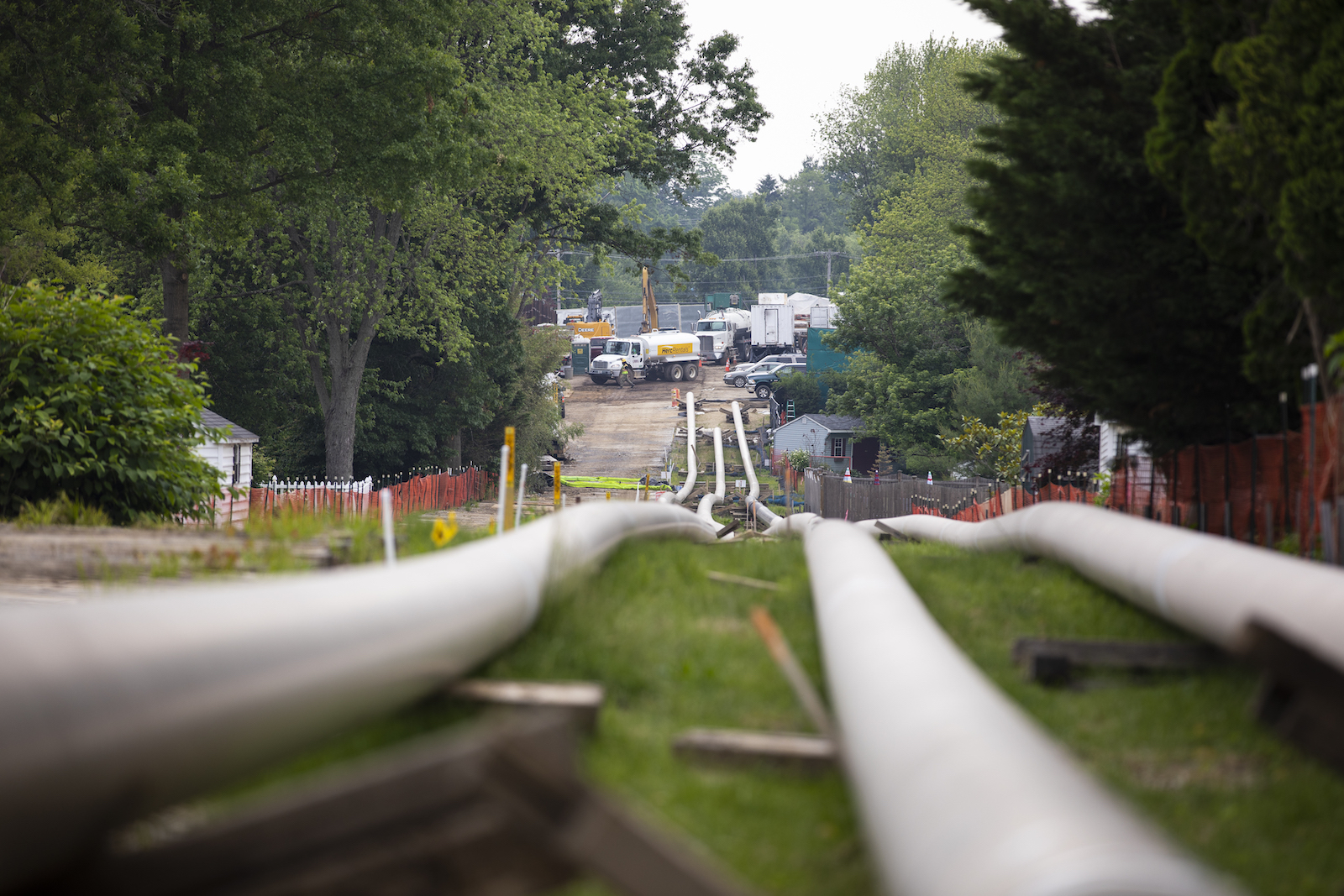On Thursday, the Federal Energy Regulatory Commission, or FERC, the agency responsible for regulating pipeline infrastructure, announced it would take greenhouse gas emissions and environmental justice concerns into account when it reviews natural gas projects. The announcement means the commission could block the construction of interstate natural gas pipelines, storage facilities, and liquified natural gas terminals on climate and environmental grounds.
Environmental groups like the Natural Resources Defense Council and the Food and Water Watch hailed the decision, saying it might mean that FERC will take an active role in decarbonizing the energy sector. Conservatives and industry groups like the Interstate Natural Gas Association of America were frustrated by the decision, arguing that it will slow the development of natural gas infrastructure.
The FERC’s announcement comes on the heels of multiple legal challenges over the years, with one key issue centered on whether or not the agency needed to take into account downstream pipeline emissions — emissions produced when customers burn the natural gas transported by pipelines — when weighing the effect a project will have on the environment.
In March of 2021, FERC considered the construction of a nearly 100 mile stretch of natural gas pipeline between South Dakota and Nebraska and what contributions the burning of the transported gas would make to climate change. But at the time, the agency only looked at greenhouse gas emissions on a case-by-case basis and had no policy in place for evaluating what a project’s emissions would be.
According to FERC’s policy statements, the commission will “undertake a robust consideration of impacts to any environmental justice communities” when assessing proposed projects and will take into account downstream emissions. The agency will also flag any proposed project that emits more than 100,000 metric tons of carbon each year, triggering the need for an environmental impact statement – the most stringent form of review under the National Environmental Policy Act. The new certification framework will be applied to pending and future projects immediately, but could change based on additional public feedback.
“We have witnessed the impact on pipeline projects when federal agencies, including the Commission, fail to fulfill their statutory responsibilities assessing the potential effects of a project on the environment, landowners and communities,” said FERC chairman Richard Glick in a statement. “If we are going to ensure legal durability of our orders, it is essential that the Commission satisfy its statutory obligations the first time.”
But Republican members of the commission disagreed, arguing that the agency had overstepped its authority by reinterpreting the Natural Gas Act and the National Environmental Policy Act. In a statement, commissioner Mark Christie wrote, “FERC is an economic regulator, not an environmental regulator.”



